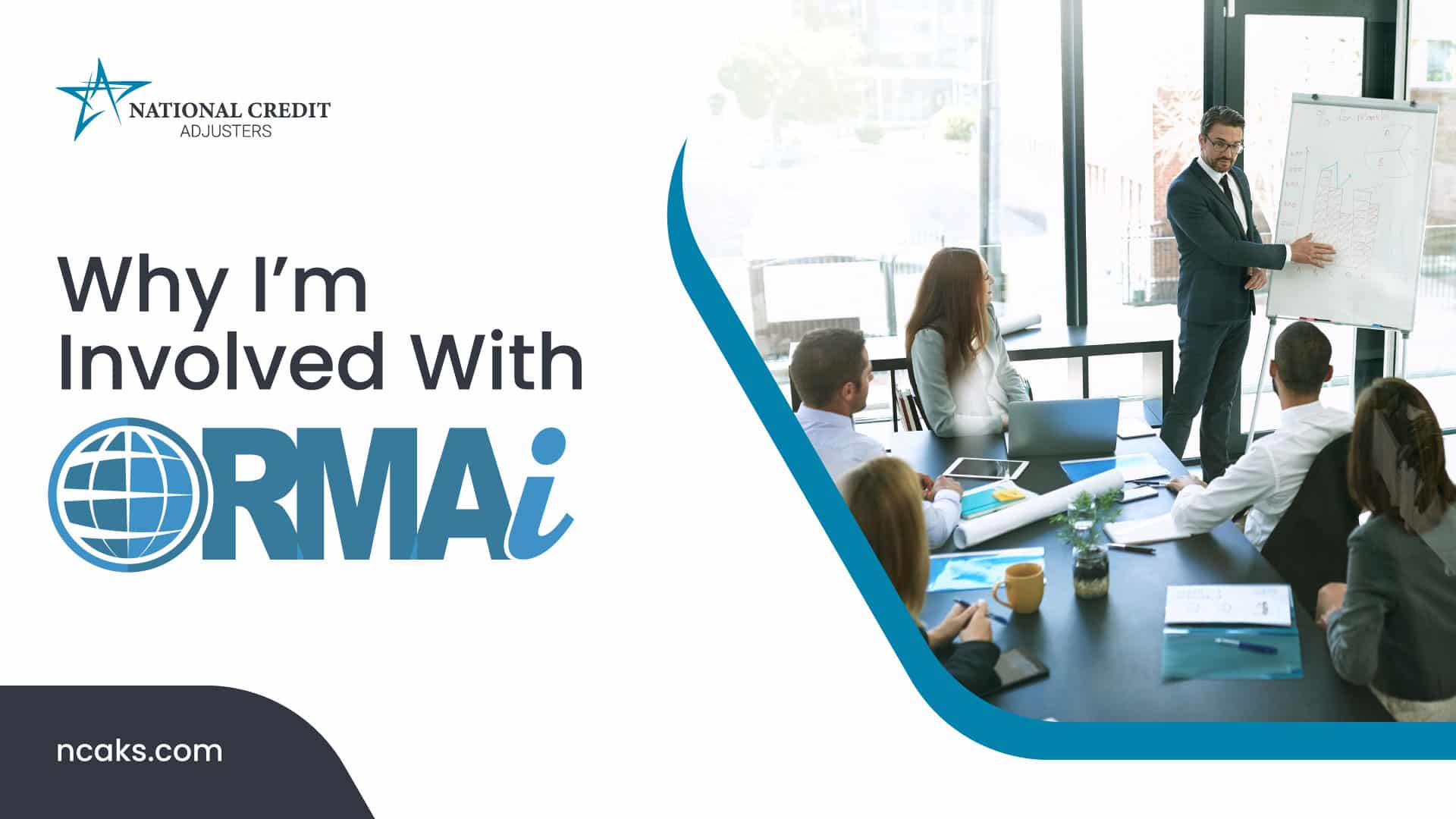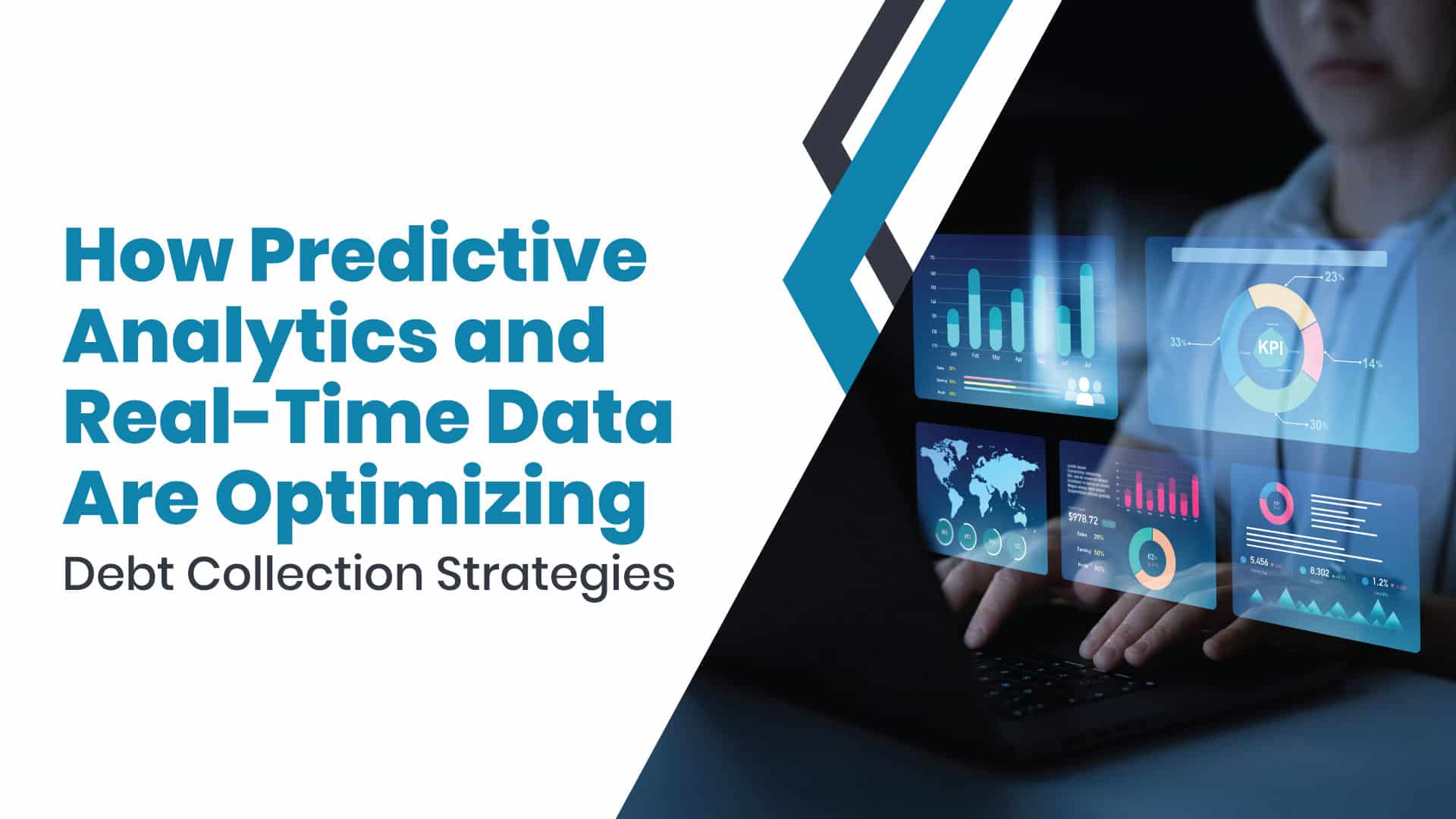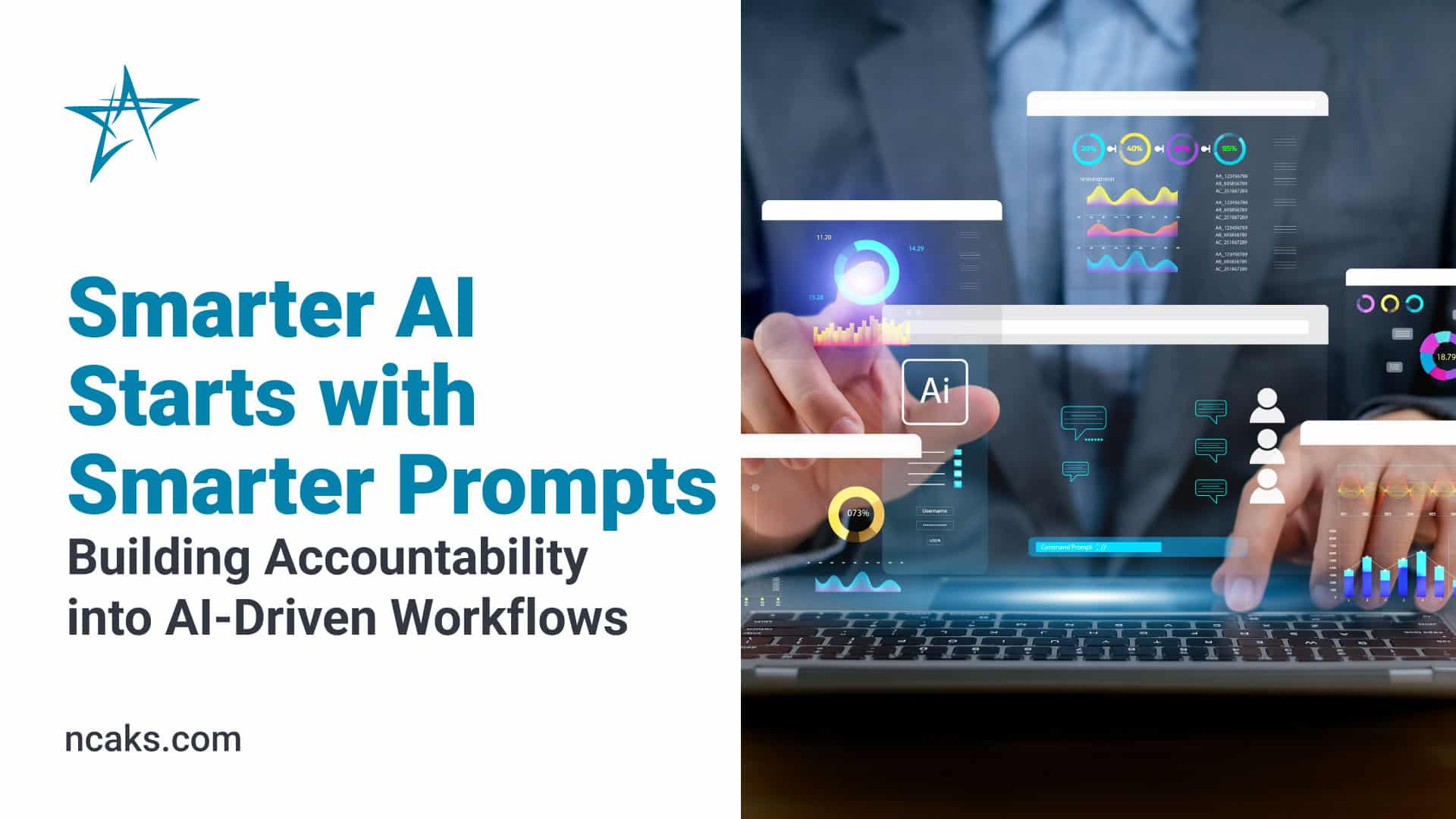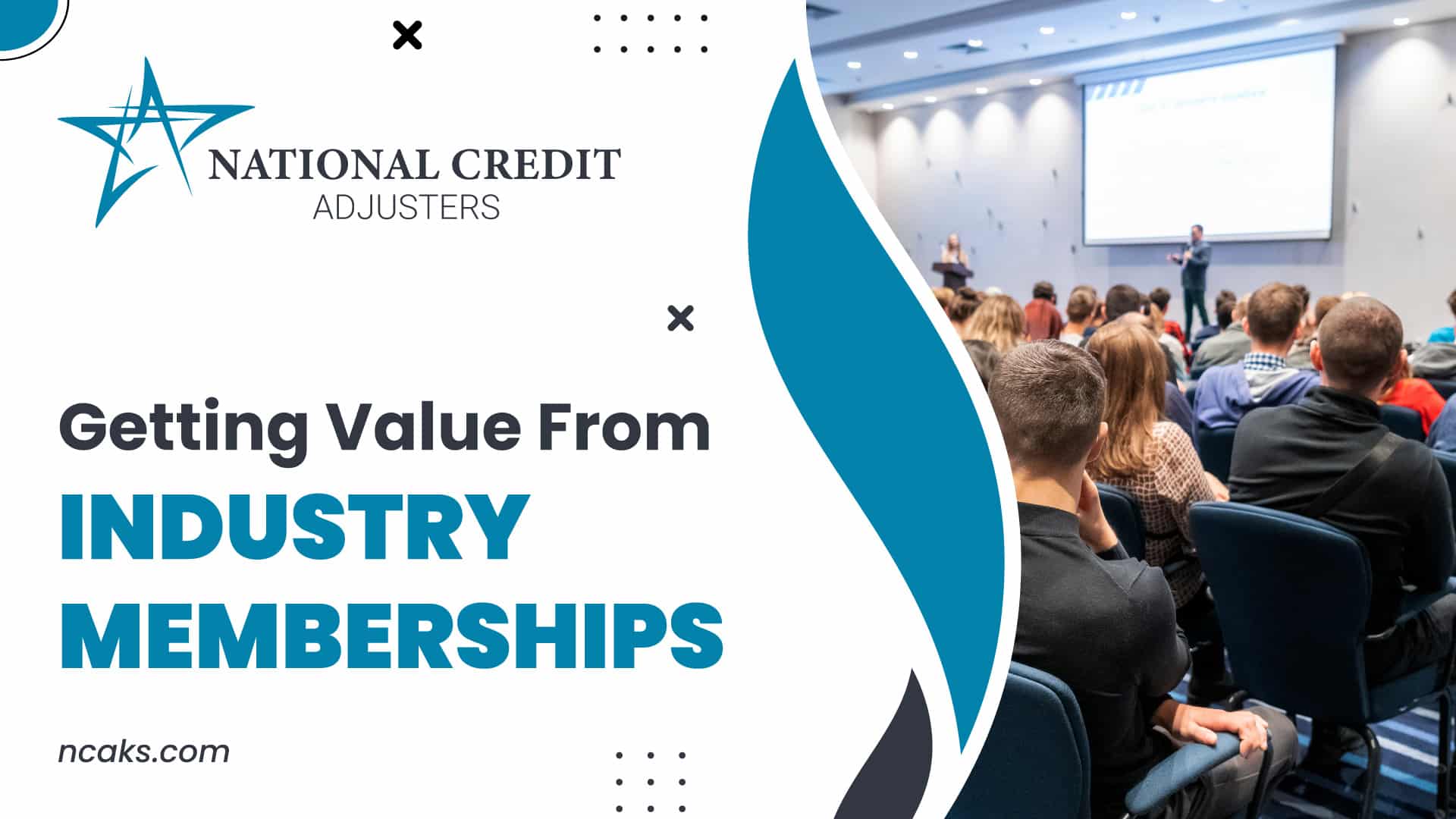By Mellisa Massey, Director of Business Development at National Credit Adjusters
If there’s one thing that’s stayed true throughout my career, it’s this—when I care about something, I dive in. That’s exactly how I’ve approached my involvement with Receivables Management Association International (RMAI).
I’ve worked in just about every corner of this industry—from creditors to buyers to law firms—and now at NCA. Along the way, I’ve seen how much our space has changed: new rules, more oversight, evolving technologies, and louder outside voices. But the one constant I’ve relied on? RMAI. It’s where I’ve gone to stay current, get involved, and help shape the direction of the industry I’ve grown up in.
Why It Matters to Show Up
Before joining National Credit Adjusters, I spent time working for a creditor, a national debt buyer, and even a law firm handling creditor’s rights. But seven years ago, I saw a gap at NCA and pitched the idea of creating an acquisitions role. I told my boss, “I think you need somebody to run your acquisitions, and I can help with that.” I outlined the job myself and said, “Can I help you?” He gave me a shot, and the rest is history. That same mindset—seeing a gap and stepping up—is what led me to get involved with RMAI in the first place.
My first experience with RMAI (back when it was DBA) was as a very green agency manager trying to figure out what this business was all about. The conference rooms were full of people who spoke in acronyms I didn’t understand yet. But I showed up. I asked questions. I listened. And over time, faces became more familiar. Long term friendships were formed. Those rooms started to feel like home.
There were also times I questioned if I had what it took to belong in those rooms. I remember presenting on a topic that I knew inside and out—but halfway through, I second-guessed myself – you know, a standard case of imposter syndrome. I don’t love public speaking, and that was a hard moment. But afterward, I heard a lot of great feedback. It reminded me of a message I received from a great leader a long time ago – “Missy, people aren’t waiting for you to say something stupid. They’re just waiting for you to say something.”
Today, I’m proud to serve on RMAI’s Board of Directors. But I didn’t get there because someone handed me a seat. I got there because I kept showing up. First to major conferences, then to regional events, then to committee meetings. I filled out the survey, raised my hand, and said, “I can help.”
Certification That Actually Means Something
What CRCP Means for Me
At NCA, we take compliance seriously—not because it looks good on a slide deck, but because we owe it to our clients, our consumers, and our industry. That’s why I keep up with my Certified Receivables Compliance Professional (CRCP) designation and why we maintain our Certified Receivables Business (CRB) status.
Staying certified means staying current. It requires intentional continuing education that keeps me plugged into regulatory trends, legal developments, and evolving best practices. That’s critical—not just for me personally, but for the decisions I make on behalf of our company.
Is certification work? Yes. There are training sessions, webinars, and regular updates that demand time and attention. But is it worth it? Absolutely. It keeps us on our toes. It keeps us accountable. And it sends a message that we don’t cut corners. When regulators and policymakers recognize the value of that certification, it helps all of us. It signals that we’re not just doing the work—we’re committed to doing it right.
Why It Matters to NCA
Certification also helps our business. I’ve been able to start conversations and open doors because of the trust our CRB status represents. For our partners, it shows we’re serious about doing things the right way.
What Committee Work Really Looks Like
Learning Through Collaboration
Joining a committee isn’t about having all the answers. It’s about being willing to listen, contribute, and collaborate. Some of the smartest insights I’ve gained have come from conversations with peers across the aisle—people with different business models, different approaches, and different stories.
When I joined the Fintech Working Group, I wanted to make sure the kinds of accounts we purchase at NCA had a voice. I brought it up. We talked about it. And now we’re seeing more representation and more dialogue around non-prime and alternative lending. That’s how it works. You show up, speak up, and the industry gets stronger for it.
The Next Generation Won’t Raise Their Hands Unless We Invite Them
Encouragement Over Invitation
Over the last few years, I felt compelled to get more involved with RMAI. I joined committees, showed up at events, and contributed where I could. Nobody tapped me on the shoulder and said, “Missy, it’s your turn.” I just leaned in and got to work. And you know what? That’s really all it takes.
One of the things I think about a lot is who comes next. Twenty years ago, I was the new face in the room. Today, I want to make sure the people stepping in behind me feel welcomed and supported.
But I also know that not everyone sees a clear path in. So, if you’re reading this and wondering whether your voice matters—it does. If you think you need permission to join a committee or run for a board seat—you don’t.
All it takes is raising your hand. And if you don’t know where to start, call me. I’ll help you find the door and walk through it.
Involvement Isn’t Optional Anymore
Stay Current or Fall Behind
We’re all feeling it—an uptick in industry pressure, credit bureau disputes rising fast, and more scrutiny than ever. The misinformation circulating on social media about what debt buyers can and can’t do isn’t just frustrating—it’s actively shaping consumer expectations. And it’s wrong.
That’s part of what makes participation with Receivables Management Association International (RMAI) more critical than ever. RMAI is one of the few platforms we have to respond as an industry. Through webinars, working groups, and education, we can push back with facts, not frustration.
I’ve seen firsthand how these conversations start at RMAI and then show up in state policy and regulatory language months later. It’s not just a conference. It’s a feedback loop to influence how our industry is understood.
We’re in a different world now. Rules change fast. Consumer expectations shift even faster. If you’re not plugged into the discussions shaping this industry, you’re going to fall behind. RMAI gives us a place to stay informed, yes—but more importantly, it gives us a place to shape what comes next.
Trade association involvement in debt collection is no longer a nice-to-have—it’s a must. These are the spaces where leadership opportunities in collections are born. These are the places where real conversations shape the future.
That said, I also want to be clear: my participation with RMAI isn’t something my company explicitly prioritizes. It’s something I’ve chosen to do because I believe it’s important. I’ve had to advocate for my time and explain the value this involvement brings—not just for me professionally, but for the visibility and credibility it brings to our organization.
Being on the Board means insights into regulation, networking with leaders shaping policy, and positioning our company alongside the highest standards in receivables. That doesn’t just help me grow. It helps NCA grow too.
If you’re in a position where you feel like your leadership doesn’t immediately see the value, I get it. I’ve been there. But I’d encourage you to lean in anyway—and let your work speak for itself.
I didn’t get involved for the title. I got involved because I care. And if you care too, there’s room at the table. Just pull up a chair—and if you’re not sure where to sit, I’ve saved you a spot.




